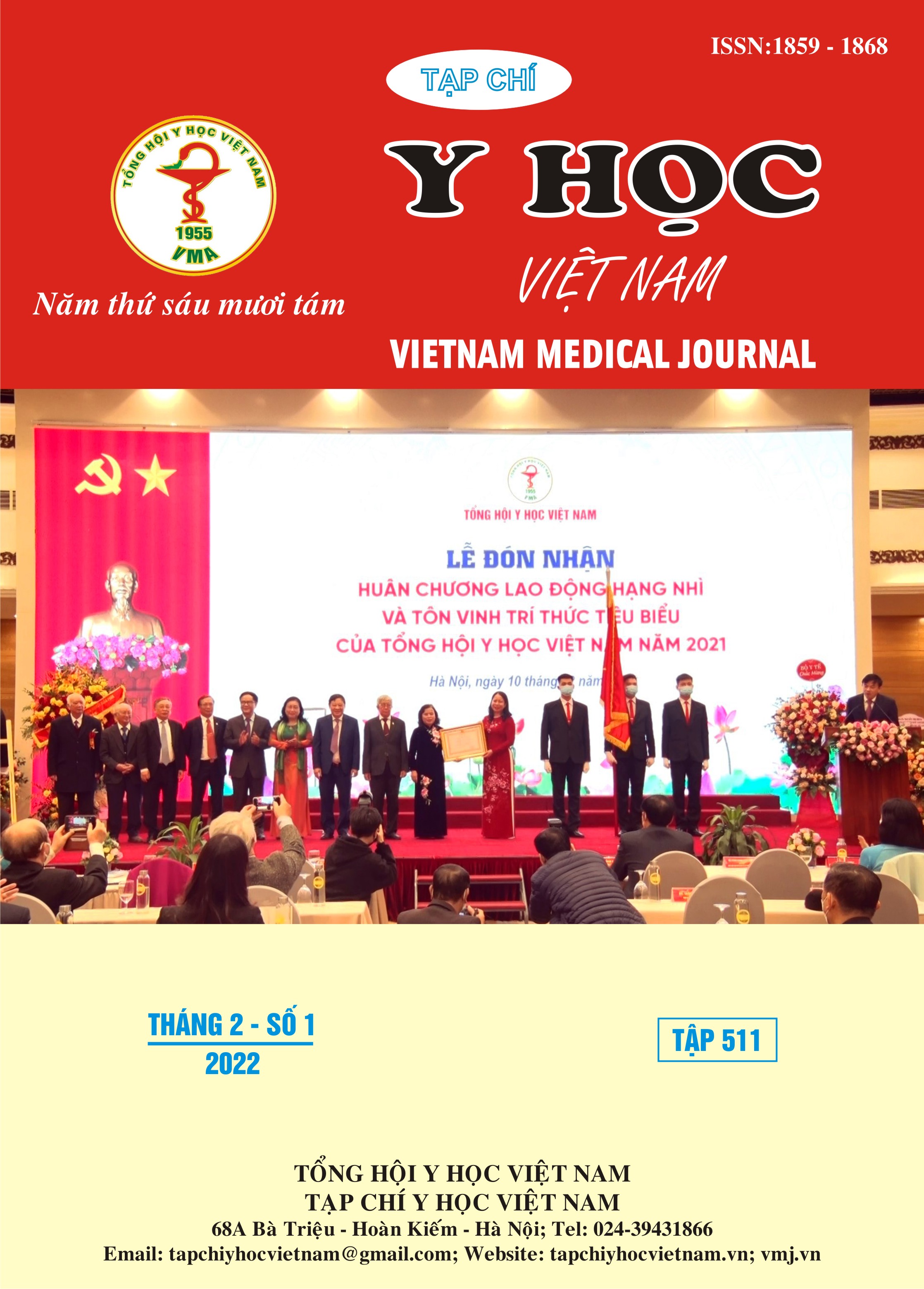RELIABILITY AND VALIDITY OF THE WORKPLACE STRESS SCALE (WSS), BRIEF RESILIENT COPING SCALE (BRCS) AND BRIEF RESILENCE SCALE (BRS) IN HEALTHCARE WORKERS
Main Article Content
Abstract
Objective: Assessing the reliability and validity of the workplace stress scale (WSS), brief resilient coping scale (BRCS) and brief resilience scale (BRS) in healthcare workers. Subjects and methods: A descriptive cross-sectional study was conducted on 100 healthcare workers at the District 8 hospital, Ho Chi Minh City on May 2021. Healthcare workers were interviewed using self-completed questionnaires (WSS, BRCS and BRS in Vietnamese). The reliability of the scales was assessed by Cronbach's Alpha index, the validity was determined by exploratory factor analysis (EFA) and confirmatory factor analysis (CFA). Results: The Vietnamese WSS, BRCS and BRS scales have high reliability with Cronbach's Alpha coefficients of 0,84, 0,83 and 0,87. The validity of the scales was determined by exploratory factor analysis (EFA) and confirmatory factor analysis (CFA) with the results meeting the standards, reflecting the appropriateness from the level of “acceptable fit” to “good fit” between the model and the actual data obtained. Conclusion: The WSS, BRCS and BRS scales_Vietnamese version show high reliability and appropriate validity to assess workplace stress levels, resilient coping and rehabilitation after stress among Vietnamese healthcare workers.
Article Details
Keywords
Reliability, validity, workplace stress, resilient coping, Vietnamese healthcare workers
References
2.Beaton Dorcas E, Bombardier Claire, Guillemin Francis, Ferraz Marcos Bosi. Guidelines for the process of cross-cultural adaptation of self-report measures. Spine. 2000; 25 (24): 3186-3191.
3. Bruce W. Smith, Jeanne Dalen, Kathryn Wiggins, Erin Tooley, Paulette Christopher, Jennifer Bernard. The Brief Resilience Scale: Assessing the Ability to Bounce Back. International Journal of Behavioral Medicine. 2008; 15: 194-200.
4. Hair Joseph F., Anderson Rolph E., Black William C.. Multivariate Data Analysis-7th Ed. Pearson, Harlow. 2014.
5. Hu Li‐tze, Bentler Peter M.. Cutoff criteria for fit indexes in covariance structure analysis: Conventional criteria versus new alternatives. Structural Equation Modeling: A Multidisciplinary Journal. (1999); 6 (1): 1-55.
6. Marlin Company, American Institute of Stress. The Work Place Stress Scale (WSS) - ANNEXURE IV. 2011.
7. Sinclair Vaughn G., Wallston Kenneth A.. The development and Psychometric Evaluation of the Brief Resilient Coping Scale. Assessment. 2004; 11 (1): 94-101.
8. Wolf Erika J., Harrington Kelly M., Clark Shaunna L., Miller Mark W.. Sample size requirements for structural equation models: An evaluation of power, bias, and solution propriety. Educational and psychological measurement. 2013; 73 (6): 913-934.


